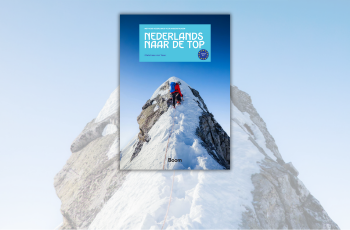Language project in class
Alternation between curriculum and projects
In most NT2 lessons, the language method is central. And that is important; the method provides coherence in your curriculum. Yet it can be good not to limit yourself to that method. Variety keeps your lessons interesting and fun, and brings life into the classroom. It keeps the brain awake and active, challenging and curious. A fun way to add variety to your NT2 lessons is to work with language projects.
The advantages of language projects
There are several advantages to working in projects. Firstly, most language learners really enjoy working on language projects. They feel challenged and taken seriously, which makes them want to make something good out of it. Project-based work, within the safe framework of the project plan, requires a lot of input from the language learner. Most language learners want to look good when they present their final products to the rest of the group. And that's a real boost to motivation. After all, you are showing something you have created all by yourself.
Language learner as the focal point
Whereas in a methodical approach the ordered learning material is the starting point, in a project-based approach the language learner himself takes center stage. From beginning to end, the language learners themselves are in charge of the project. They choose a topic and find their own sources. They read, write and speak about it in their own way. And that makes a lot of impact. In this way, it is the stumbling blocks a learner encounters that determine the learning moments and not the curriculum.
Rest
A big advantage, for both the student and the instructor, is the peace of mind that working in projects brings. This approach requires a lot of individual, pair or small group work. Experience shows that there is (industrious) quietness in the group for several class hours. Everyone is concentrated on their own work.
And that saves time, time in which you can, for example, go deeper into the questions of individual language learners and provide more personal feedback. What is a language learner up against? What extra input can you provide? Project-based work is an excellent opportunity to offer your students or trainees more targeted, tailor-made education and to give them the personal attention they might otherwise lack.
All skills covered
NT2 is a subject ideally focused on training skills. But you might subconsciously get the impression that in project-based work the focus shifts from training these skills to more substantive knowledge. This is not the case.
While working on language projects, trainees are constantly reading, listening, speaking and writing. Not to mention with a purpose, the project becomes a means to get something done. This makes the activity more meaningful and challenging.
In addition, the students or trainees also train additional skills that would not or much less be covered in a method-based approach, such as looking up and evaluating information, writing different types of text and presenting. But taking notes and writing reports are also skills that are addressed in project-based work. Thus, language skills remain the main objective throughout the project.
The project plan
A good language project has a number of prerequisites. First, it is important that you begin by making a project plan on paper. This project plan gives both you and your students something to hold on to during the project. So it is important that you write the project plan in 'student language'.
Define your objective
One of the parts of the project plan is defining the objectives. This is one of the prerequisites for a successful project. It is important that you specify these prior to the project. Examples of objectives in a language project could be:
- Expanding vocabulary around a particular theme
- Learning to set up and elaborate a presentation
- Improving speaking skills by e.g. giving a presentation
Criteria
The next important requirement is to name the criteria against which the final results will be evaluated. It is important that you make these comprehensible and explicit in your project plan. Before you start the language project, it is advisable to think about the assignments and criteria together. In this way, you ensure that everyone understands exactly what is intended and what requirements must be met.
Language projects at any level
The great thing about language projects is that you can do them at any level. Are you working with beginning learners and afraid that project-based work is not for them? No need to be. For this group of learners, however, it is essential that when setting up your project, you pay close attention to making sure that the project is well suited to the group. For example, choose a topic that is appealing and feasible for the group, a design that is doable and set criteria that match their level. This is of course important for every group, but for beginners it is important to pay extra attention to this.
More inspiration
Are you curious about what else you should think about when coming up with your first (or next) language project? More information and inspiration for projects can be found in the cahier Projectmatig werken in het NT2-onderwijs. In it author Fros van der Maden gives away her years of experience with successful language projects. She teaches you how to choose topics, make project plans, set goals and give feedback on projects.


_w173_h400.png)



















